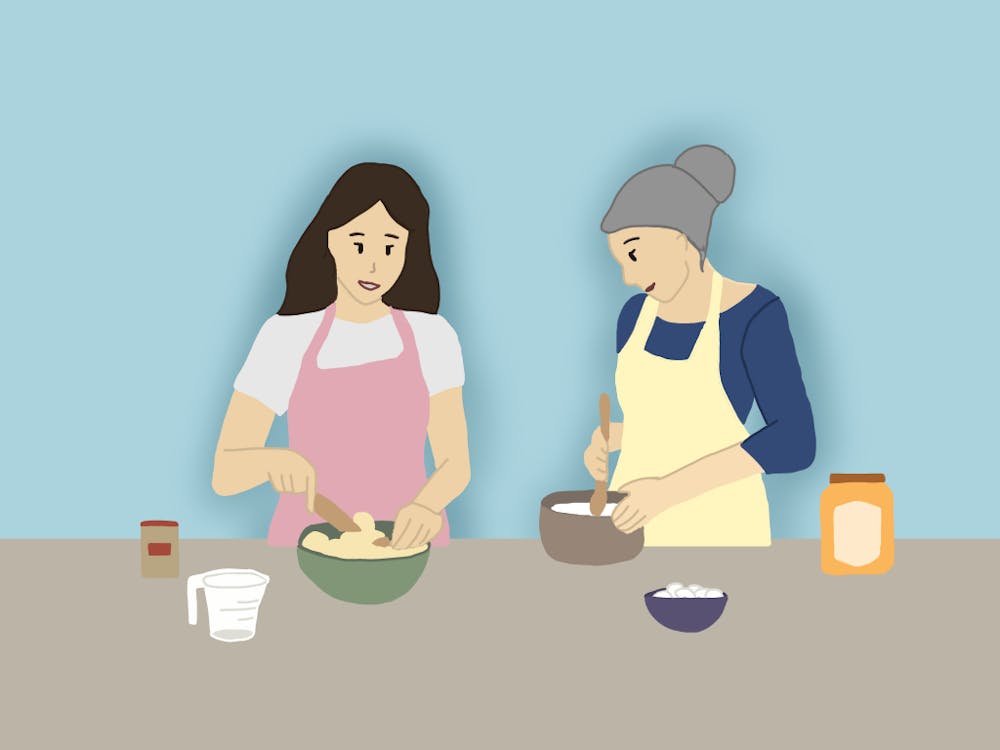Moving away from home and gaining new perspectives are experiences many first-year students expect. There are several additional challenges specific to about 5 percent of University students, however. These are the students who journey to the United States from their home countries to attend the University.
"It's hard to be an international student," said third-year College student Sharon Wong, who is from Malaysia. "At first, it was difficult for me to get used to the way that different people think, especially the U.Va. mentality."
It is not only adjusting to a new culture, though, as international students also must cope with leaving behind their own cultures, to a certain extent.
"Chinese New Year is a major celebration for my family," Wong said. "Visiting relatives is an important part of the holiday, but because I am in the U.S., I can't do that."
Wong also noted that many international students have nowhere to go during breaks, such as Thanksgiving, because the costs of traveling home often outweigh the advantages.
In addition to cultural barriers, many international students must cope with language barriers, as well, if English is their second language.
"Getting used to speaking English everyday was initially a big challenge for me," said second-year College student Veronika Polavoka, who is originally from Prague. "Speaking a second language can be really confusing. Sometimes there are words that you want to say, but you can't think of the equivalent and what you say doesn't make sense."
But University students should not assume that just because English may be a second language for international students, these students cannot understand what is happening around them, Wong said.\n"Many people think that international students don't speak English well or that we flock to groups," she said. "It's just much harder to be an international student. Don't assume we are familiar with all aspects of American popular culture."\nUniversity students also sometimes do not realize how much international students actually invest into their time in the United States.
Fourth-year College student Jin Young Yu, who is from South Korea, explained that she had wanted to go to pharmacy school but could not afford high tuition because her undergraduate tuition was already expensive by itself. Although she understands why U.S. students often are given priority in terms of receiving scholarships or financial aid, she said she believes that everyone could benefit by easing the financial burdens of international students.
"I think some people feel that international students need not get scholarships because they are going to leave after graduation to serve their own countries," she said. "But if American universities made it easier on the international students financially, I am sure that more students will stay in America, or be more willing to help America down the road, even if they do return to their native countries."
Despite the large amount of challenges that international students face, Wong emphasized there also are great advantages and benefits to studying in another country. Being exposed to diverse cultures often yields a change in the way a student views the world, she said.
"Having access to so many cultures while, at the same time, retaining your own identity, is a great benefit to studying abroad," she said. "I have definitely gained a different perspective, a variety of perspectives."
Many students studying abroad at the University find that it is easier to become involved in the community through clubs or contracted independent organizations.
"Student organizations have definitely helped ease my transition," Naim said. "While other resources set up at the University do as much as they can, they must often divide their time with dozens of other students. I have found that student groups, especially multicultural ones, are great resources."
Naim, a member of the Arab Student Organization, added that joining student organizations has helped her meet more people who share similar interests. Moreover, she has the opportunity to participate in cultural events.
Others turn to friends and family as resources during the transition. Time differences and the steep cost of telephone calls, however, can often make communicating with loved ones a challenge.\nWhile Polakova said her family is the most important element of her personal stability, she found that one of her greatest resources on Grounds was a College dean.
"I was really lucky my first year," she recalled. "I had the opportunity to meet a dean in the College who taught a core class. The meeting was accidental, but someone told me about her, that she studied politics and had an interest in the Czech Republic and that I should go talk to her. She was a lot of help."
There are many official resources established at the University, such as the International Studies Office, to assist international students. For instance, the office holds advising hours during the week for international students seeking guidance. International student advisers also offer support by aiming to inform students of their resources, whether academic or health-related, international student adviser Brian Ullman said.
The international community is a key component of the University, Ullman said.
"Internationalization is central to what the University is," he said. "It is through the diversity of experiences that the best learning takes place"






